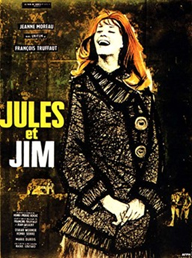Could Have

I was Skyping with an old friend, yesterday. We live in different countries; we had not talked for a while. I didn’t find her in the best of moods. She had just had a birthday, 46, and she was thinking – a lot – about her life so far.
One could have expected her to be pretty proud of herself. Her parents had little money and no education to speak of; she has worked her way through college and a master, and up to the place where she is now – currently in charge of her company’s top priority project. She is remarkably good looking; she is smart, interesting and funny.
“There’s so many things I could have done, ” she was saying, “worthwhile things”.
“What’s not worthwhile, with what you have accomplished”, said I. “ You are probably most young women’s dream come true”.
“ Well, maybe not my dream. You know what? Only now I see that I should have made a totally different career choice. I should have been a teacher. Make a direct difference in people’s life. Also, that’s what I really like to do, teach young people. But of course I’m not qualified, and it’s too late to go back to school now.”
The rest of our conversation was about the many assumptions she was making – assumptions that reinforced the idea she was stuck. It seemed to me that most of them could be challenged.
For example, the idea that she was not qualified to be a teacher, and that to qualify she would have had to go back to school. “Teaching the young” and “making a difference for them” could probably be done on the job, within her company, in many different ways. She has a long, practical, solid experience to share. Should she want to teach formally, she could design and hold workshops for her younger colleagues (workshop design can now be learned in many more, easier ways then before. Just try Google on the subject). Basic group management in a classroom setting can be learned by taking specific courses, by shadowing experienced workshop leaders, practicing and practicing… There are actually many more possibilities than there used to be, out there.
But what struck me most in the way my friend felt was not the practical side of unseen possibilities; it was the frame of mind she seemed to be in. Strangely enough, it’s a frame of mind I have encountered most often in people that the world sees as successful – precisely the ones that we would expect to be the most satisfied with themselves.
“I could have”.
“Could” implies that the potential was there – the basic talent, or talents, that we could have used to do/have/be. “Have” implies that we are talking about the past, and that those talents are no longer there, or that they cannot be put to good use anymore.
This second assumption is seldom correct, actually. We have not been trained to see a potential in the second part of our life because … there used not to be, what we now call the second part. By the time you had reached your original career goals, and/or the children were off into their own life, you pretty much kicked the bucket. As a consequence, tradition sees fifty as a pre-rocking-chair age, and very little else.
At thirty, most of us cannot even visualize life after middle age. At sixty, it’s as if we’d never had a mid-life crisis. But as we turn forty-five, we are facing uncharted territory.
Uncharted. As in : “without borders, fences or forced paths”.
Leave a Reply